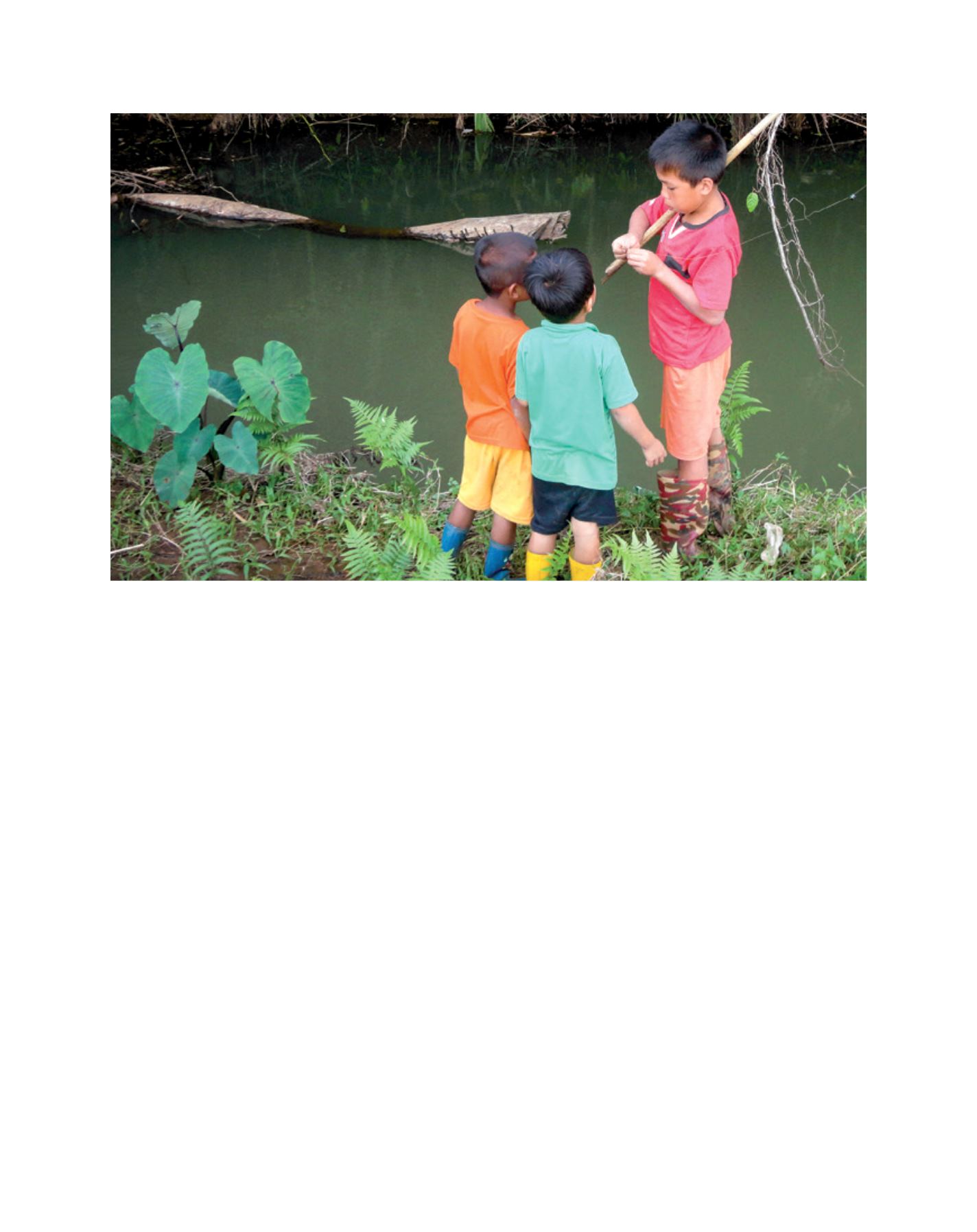

[
] 204
Image: Renelle Joy Tabinas
‘Kuya’ (an older brother) showing his little brothers how to catch fish using a bamboo fishing rod
development through agriculture and fishery. They have surren-
dered their hearts so that the idle lands they own, which used to
be camps, will become productive, and the returnees themselves
will become effective leaders, farmers and eventually agriculture
entrepreneurs in each of their communities.
As taught to them by the Director Saliot, going into battle is
never the answer to overcome poverty. They may still be able
to hide from bullets but they can never run away from hunger.
Thus, cultivating their soils and vast land areas is the ultimate
solution to their never-ending cries. The former rebels have also
considered the future of their children. They no longer want to
see their young boys handling guns and hiding up in the moun-
tains experiencing the same anxiety as they have. Education
is the primary desire of Commander Benjie Lucsadato for his
children, and is among the reasons why he turned away from
rebellion. “It is not only feeding our stomachs, it is also feeding
our brains,” he said. At present his children, together with other
out-of-school youth, have undergone the capability and skills
trainings administered by ATI while some are among the schol-
ars of the agency’s ladderized programme.
Since its conception in 2012, 10 commander returnees and
two active ones, with their followers, have joined the From
Arms to Farms programme. Among the 12 leader partners,
three are already farmer lecturers currently providing assistance
and technology demonstrations to their people including out-
of-school youth scholars. The assistance greatly contributed to
how they now operate in the fields. Vermicompost areas were
constructed, tilapia ponds cultured in the uplands, and diversi-
fied commodities grown in the vast tracks of land which used
to be their base camps. The farmer rebel returnees also learned
about raising livestock and poultry, and feeding them organi-
cally. It was proven that the natural way of growing crops and
raising animals without the use of any chemicals is the best
alternative. Aside from being affordable, families are assured
that they are consuming healthy and safe food.
By introducing the farming technologies, the ingenuity of
the Agricultural Training Institute has strengthened not only
farming families but also the communities covered by the respec-
tive MILF camps of the Maranao groups. Battlefields have been
cultivated to become rice fields and the rebels formerly armed
with heavily calibrated guns are now cultivating with their hoes,
planting crops and making a living out of their farms.
Farming has indeed come a long way in addressing peace,
hunger, poverty and education in certain Maranao groups in
the rural communities of Southern Philippines. Reaching out to
them and empowering people in the highlands is the sole intent
of the programme. ATI continues to pursue interventions for
the betterment of the lives of Filipino farming families and rural
communities, including the rebels in conflict areas. With the
present administration’s aim of inclusive growth, even former
rebels can become productive farmers; war zones can become
greener fields, andweapons can be replacedwith tools for farming.
It is hoped that through the programme, other rebel communi-
ties will be encouraged to follow in the steps of their brothers and
engage in farming. Setting as examples the surrender of hearts by
the commanders-turned-farmers and lecturers, other families and
communities in the rural areas of the Philippines have distinct
chances to be uplifted through devoting themselves to farming.
D
eep
R
oots
















